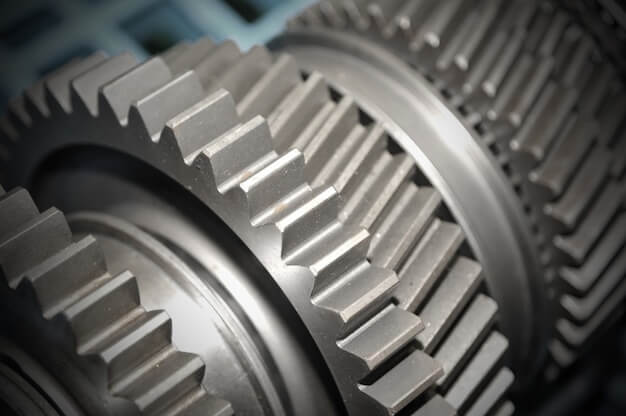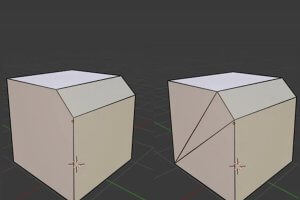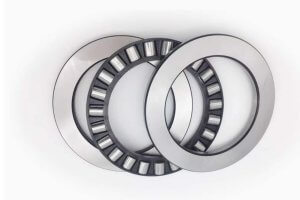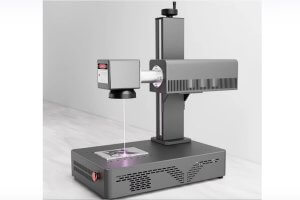Introduction to CNC Machining and Importance of Precision with Titanium
CNC, Computer Numerical Control, machining is a sophisticated manufacturing process utilizing computers to control complex tools such as grinders, mills, routers, and lathes. This automated process facilitates precision in high-volume production, thus enhancing efficiency and reducing the likelihood of human errors. Accuracy is paramount in industries like aerospace, automotive, and medical where even tiny variability can render significant implications on product quality or safety.
Titanium stands out in this realm for its unmatched strength-to-weight ratio, corrosion resistance, and capacity to withstand extreme temperatures. Touted for these unique traits, titanium alloys have become a preferred material for high-precision jobs. The natural properties of titanium – lightness, durability and strength – render it an optimal choice for challenging environments subject to intense stresses yet mandated strict taxations on weight.
- The Role of Titanium: Its significance in high-intensity applications cannot be undermined, particularly when enhanced accuracy, reliability, performance, and longevity are sought – a need that custom CNC machining solutions cater for efficiently.
Understanding Custom CNC Machining
Custom CNC machining, standing for Computer Numerical Control, operates on the basic principle of computer-aided designs that guide machinery to produce precise and complex parts. The programming process involves highly skilled programmers who translate design dimensions into a series of codes or commands which are then inputted into the CNC machine. This critical step converts an engineer’s blueprint into a tangible product.
The customization aspect of this manufacturing method is particularly significant within industries that require high precision parts with unique specifications. Customization provides several key benefits to manufacturers; it facilitates rapid production speed, decreases waste, and enhances flexibility in producing diverse product ranges all while maintaining rigorous quality control standards. Equally importantly, custom CNC machining reduces expenditure by decreasing labor costs while increasing productivity due to automated operations.
- Definition: CNC stands for Computerized Numerical Control, representing a method for automating control of machine tools via software embedded in microcomputer attached to the tool.
- Programming: Involves translating design dimensions from a blueprint into binary code, guiding the tool’s movement during operation.
- Significance: Provides a flexible and efficient solution for creating precise components at scale, often reducing cost and time required.
When considering the role of titanium in custom CNC machining, it’s essential to recognize its exceptional properties, including high strength-to-weight ratio, corrosion resistance, and biocompatibility. These properties make titanium an ideal choice for high-precision components in specialized industries such as aerospace and medical. The use of titanium in custom CNC machining ensures the production of lightweight, durable, and high-quality parts that meet the stringent requirements of these industries.
Advantages of Using Titanium in CNC Machining
The use of titanium in custom CNC machining offers several notable advantages that revolve primarily around its unique physical properties. One significant advantage is the exceptional strength-to-weight ratio of this metal. This aspect means that even while being relatively light, titanium can support substantial weight and withstand rigorous handling or stress without compromising any aspects of performance. Hence it’s a prime choice for parts requiring high precision.
Titanium poses an inherent resistance to corrosion, ensuring long-term durability against environmental factors such as moisture, saltwater or chemical exposure which are typically harmful for metals. It allows components to maintain their structural integrity and functionality over extended periods, reducing maintenance requirements and costs significantly. Thirdly, an important factor that sets titanium apart is its impressive temperature resistance. Unlike most metals that deteriorate or deform under extreme heat conditions, titanium remains stable.
This characteristic proves crucial when machinery or parts operate in high-temperature environments or situations where thermal stress is retentive – not only does it ensure operational stability, but also extends the life span of these components markedly, providing a valuable benefit in terms of long-term financial efficiency. With these merits, titanium undeniably provides unparalleled benefits in CNC machining applications.
Challenges with Using Titanium in CNC Machining
In the realm of custom CNC machining, titanium’s unrivaled strength often poses significant challenges. Known for being a highly durable metal, it can be quite stubborn to cut and shape due to its toughness, leading to accelerated tool wear and necessary frequent replacement which increases overall process time and cost. Its low thermal conductivity also causes heat concentration at the point of contact which may lead to distortions and inaccuracies during the machining.
- Mitigation Strategies: To counter these difficulties, professionals use specially designed cutting tools meant for sturdy materials like titanium. High-pressure coolant systems are implemented that not only provide efficient cooling but also clear chips effectively thus maintaining precision. A controlled cutting speed along with consistent feeds helps reduce unnecessary pressure on the machining tools.
High Precision Achieved with Custom CNC Titanium Machining
In custom CNC titanium machining, achieving high precision is primarily attained through several meticulously applied methods. One such significant process entails rigorous programming of the Computer Numeric Control (CNC) machine to follow exceptionally strict dimensional parameters while handling titanium; known for its strength and toughness. This detailed programming ensures that each cut, drill or mill aligns seamlessly to create shaped parts with precise accuracy.
An illustrative case study would be the manufacture of aerospace components requiring extreme precision. The machinery tasked with creating these intricate pieces must demonstrate not just proficiency but unprecedented exactness. Therefore, integrating techniques like constantly calibrated equipment, use of advanced CAD software, and stringent quality testing measures could result in optimal precision. Constant calibration of the CNC machine keeps it in prime working condition, enhancing durability and ensuring consistency over a prolonged period. Adopting state-of-the-art computer-aided design (CAD) software offers better control during the machining phase because of its accuracy in translating designs into finished products. Lastly, incorporating thorough quality testing provides feedback on the production process allowing for adjustments necessary to maintain high precision.
Conclusion
In a nutshell, the importance and advantages of custom CNC machining solutions with titanium are unarguable. The combination of high precision machining with robust titanium material not only enables more accurate results but also ensures longevity and durability in different industrial applications. Especially considering that it allows for design flexibility, reducing waste, optimizing efficiency and ensuring excellent output regardless of project complexity.
The future prospects of this technology appear incredibly bright too. With advancements in AI and machine learning technologies, we can anticipate even smarter CNC machinery capable of self-correction, better predictive maintenance, and heightened production speeds without compromising on the quality of work produced.
- Self-correcting CNC machines will reduce downtime by heeding to machine issues timely.
- Predictive maintenance will optimize operations efficiency, cutting down unwanted costs and time spent on reactive repairs
- Heightened production speed will provide quicker turnaround times, thereby boosting productivity significantly.
Thus, as industries progress towards more refined manufacturing practices and demanding accuracy needs, adopting custom CNC machining solutions with titanium seems destined to be an undeniably wise investment. Engineers and manufacturers who embrace this transformative technology now stand poised to gain competitive advantage and set new industry standards in days to come.
Other Articles You Might Enjoy
- Efficient CNC Machining of Lightweight Metal and Chrome Removal( cnc machining services china Atwood)
Computer Numerical Control (CNC) machining is a modern manufacturing process used in various industries, frequently dealing with lightweight metals or needing to remove chrome from metal surfaces. This article will…
- Titanium Grade 5 vs. Grade 23 in CNC Machining: Which is More Efficient?
Introduction: Titanium Grade 5 vs. Grade 23 in CNC Machining In the realm of Computer Numerical Control (CNC) machining, the use of titanium-based materials is quite prevalent due to their…
- Using CNC Machining to Fabricate Lightweight Metal and Remove Chrome From Metal( cnc machining services china Dana)
CNC (Computer Numerically Controlled) machining is an essential process in the manufacturing domain. With its precision, adaptability, and extensive applications, many industries rely on it for fabricating highly complex parts…









